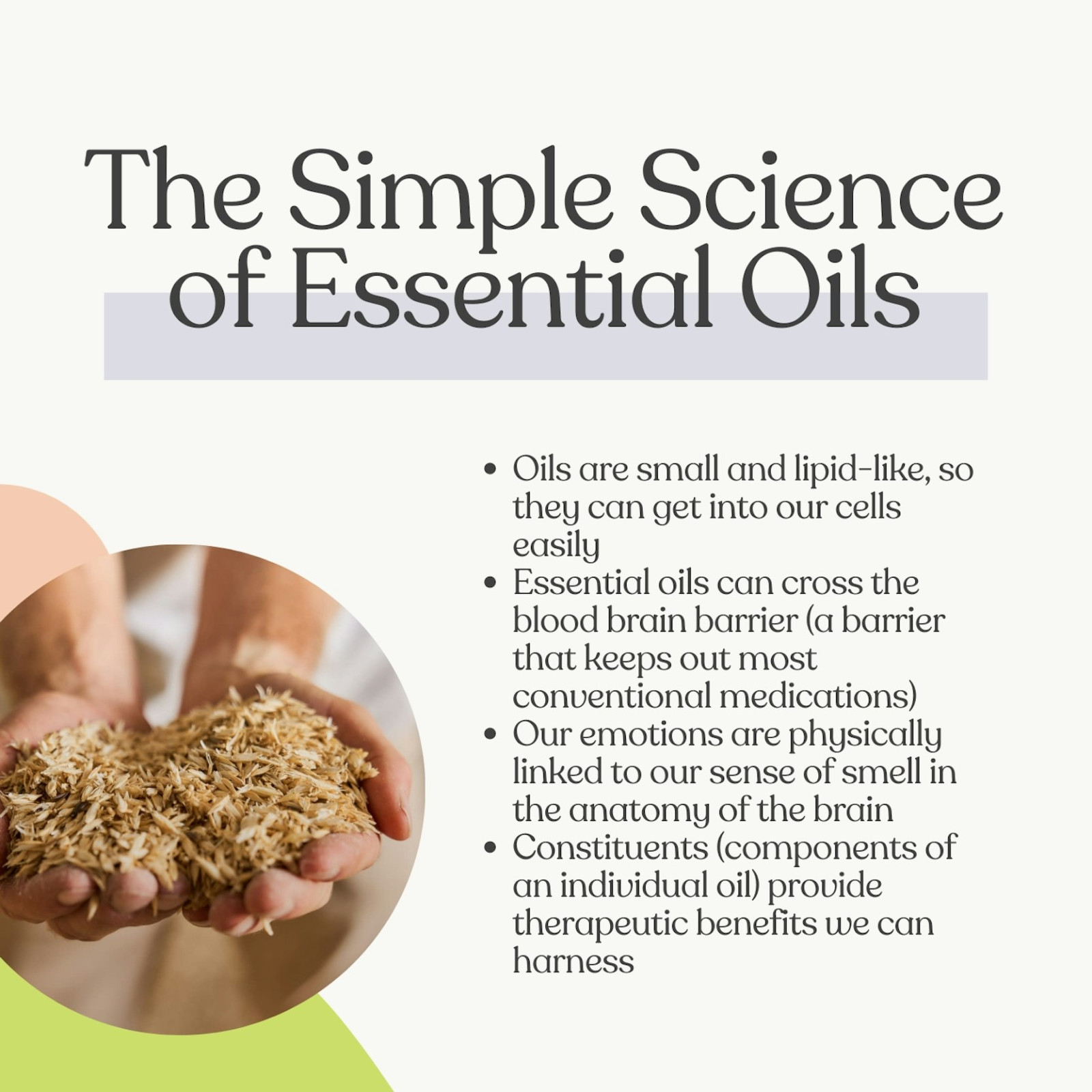
Hey everyone! I've been getting a lot of questions recently regarding essential oils. The most prominent question has been, WHAT ARE ESSENTIAL OILS?
Let's start here: As you might know, essential oils have gained popularity not just for their captivating fragrances but also for their documented therapeutic benefits. Let’s explore the science behind why essential oils are effective for our bodies, minds, and emotions.
What Are Essential Oils?
Essential oils are concentrated plant extracts that retain the natural smell and flavor, or "essence," of their source. They are obtained through methods such as distillation (via steam and/or water) or mechanical methods, such as cold pressing.
How Do Essential Oils Work?
The effectiveness of essential oils is primarily due to their chemical composition and how these compounds interact with the human body. Here are some key mechanisms:
- Absorption and Delivery:
- Inhalation: When essential oils are inhaled, the aromatic molecules travel through the olfactory system directly to the brain, particularly affecting the limbic system, which is linked to emotions, behavior, and memory.
- Topical Application: When applied to the skin, essential oils are absorbed through the skin's layers and into the bloodstream. This process allows the active compounds to circulate throughout the body and interact with various physiological systems.
- Chemical Composition:
- Essential oils are composed of volatile organic compounds (VOCs) such as terpenes, esters, alcohols, aldehydes, ketones, and phenols. Each of these compounds has unique properties and effects.
- For example, linalool (found in lavender) is known for its calming and anti-anxiety properties, while menthol (found in peppermint) is noted for its cooling and analgesic (pain-relieving) effects.
Scientific Benefits of Essential Oils
- Aromatherapy for Stress and Anxiety:
- Lavender Oil: Research shows that lavender oil can reduce stress and anxiety levels by affecting the limbic system. A study published in the Journal of Alternative and Complementary Medicine found that lavender oil had significant anxiolytic effects, similar to some prescription medications.
- Antimicrobial and Antiviral Properties:
- Many essential oils, such as tea tree oil and eucalyptus oil, have been shown to possess antimicrobial and antiviral properties. These oils may inhibit the growth of bacteria, fungi, and viruses, which could make them useful in treating infections and in natural cleaning products.
- Pain Relief and Anti-inflammatory Effects:
- Peppermint Oil: Contains menthol, which has been found to help with pain and reduce inflammation. Several studies can be found on Pub Med.
- Cognitive Function and Mood Enhancement:
- Rosemary Oil: Known to help improve cognitive performance and mood. Research in the Therapeutic Advances in Psychopharmacology journal indicated that inhaling rosemary oil may enhance memory and alertness.
Safety and Usage
While essential oils offer many benefits, they must be used safely:
- Dilution: Essential oils should be diluted with a carrier oil (such as coconut or jojoba oil) before applying to the skin to prevent irritation.
- Quality: Use high-quality, pure essential oils from reputable sources to avoid adulteration and potential side effects.
- Sensitivity: Conduct a patch test before using a new essential oil to check for allergic reactions.
Conclusion
Essential oils harness the power of natural plant compounds to promote physical and emotional well-being. Through scientific research, we understand how these oils interact with our bodies to provide therapeutic benefits. Whether used for stress relief, pain management, or cognitive enhancement, essential oils offer a natural and effective approach to holistic health. So, next time you inhale the soothing scent of lavender or feel the invigorating coolness of peppermint, you can appreciate the science that makes these experiences possible.
To be continued...









0 Comments